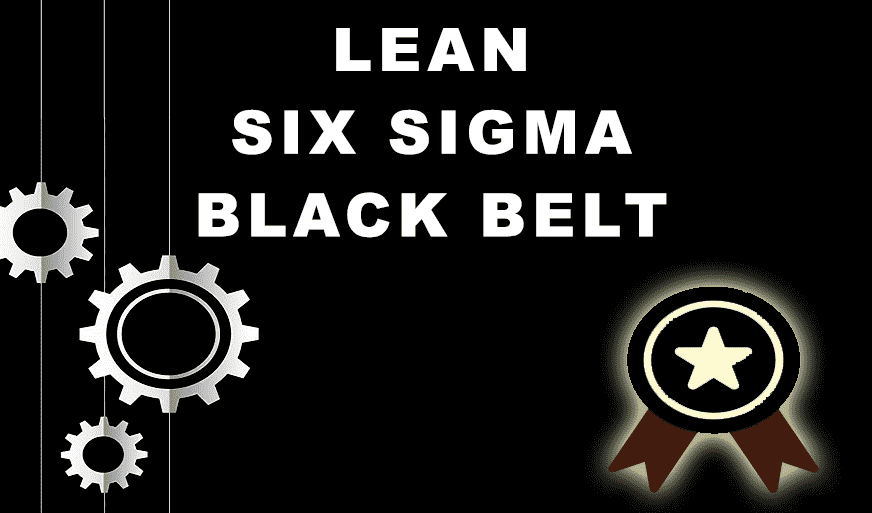Quality Management System – QSM Approaches and Methodologies
-
 By Sushmith
By Sushmith - Published on Aug 22 2024

Table of Contents
Understanding Quality Management Systems (QMS)
A Quality Management System (QMS) is the key to helping businesses achieve their goals by ensuring that products and services meet high standards of quality and focusing on customer satisfaction. A high standard of quality and assured customer satisfaction can only be achieved through continuous improvement and effective processes. A robust QMS can help organizations achieve this effectively.
In short, a Quality Management System (QMS) is a standardized system of operations that meets customer needs and also focuses on efficiently adapting to changing market demands. It provides a structured framework that helps organizations maintain consistent quality and comply with all regulations. In this blog, we will be exploring the various QMS approaches and methodologies that every business must know about. But first, let’s know about QMS in a little more depth.

Historical Development and Evolution of QMS
The concept of quality management isn’t a recent invention. It has evolved significantly over time since about a century, and we have what we know now. Initially, quality control was reactive, focusing on inspecting products after production. But in recent times, this approach has demanded a change with the updates in the modern business world, and hence has introduced proactive quality assurance and continuous improvement methodologies.
– Early 20th Century:
In the early 1900s, quality management was mostly about reacting to defects after they occurred. Walter Shewhart, sometimes called the grandfather of quality control, introduced the concept of statistical quality control. This revolutionary approach used statistical methods to control the quality of production rather than just inspecting finished products.
– 1950s:
In the 1950s, W. Edwards Deming, an American business theorist, brought about a major change by working with Joseph Juran, a Romanian-born American management consultant. They noticed the potential and expanded the key scope of quality management beyond just defect detection. Their core ideas underlined the importance of continuous improvement and the role of quality in all aspects of an organization.
– 1980s:
By the 1980s, the concept of quality management had become more important for organizations. Utilizing the then-existing QMS approaches and methodologies, the introduction of Total Quality Management (TQM) made its way. The aim of TQM was to create a culture where quality was the responsibility of everyone in production. It emphasized customer satisfaction and employee involvement.
– 1990s:
In the 1990s, ISO 9001 emerged as a global standard for Quality Management Systems (QMS). The International Organization for Standardization (ISO) provides a structured framework for organizations to ensure regulatory compliance for a product or a service. Organizations that are ISO-certified are internationally trusted and considered safe to use.
Core Principles of Quality Management Systems
Even after all this evolution, QMS still follows the same principles since the core focus of quality management has always been the same. The needs were only realized recently, and the required standardizations were made. And the core principles among them are:
* Customer Satisfaction remains the first pillar of QMS. Understanding and meeting customer needs and expectations is the only way to build long-lasting relationships with customers. A customer-focused process guarantees that quality aligns with what matters most.
* Continual Improvement makes up for all other pillars to build a strong foundation for QMS. Continuous improvement underlines the need for enhancements to the process, product, or service. This allows organizations to adapt to the changes in the market and stay competitive.
* A Process-Oriented Approach provides a streamlined pathway that helps organizations make the quality control process easy. By focusing on the right outcomes of the process that enhance overall performance, organizations can reduce inefficiencies and enhance quality.
* Leadership Commitment is one of the least-spoken or under-considered principles of QMS. Strong leadership can drive top-notch quality initiatives by setting clear objectives and building a culture that supports and achieves high standards of quality.
Since we’ve learned so much about QMS, let’s just dive into the QMS approaches and methodologies.

Key Approaches to Quality Management
1. Total Quality Management (TQM)
Total Quality Management (TQM) is a comprehensive approach that takes the quality control process seriously by including everyone in the organization’s operations and focusing on improving overall quality. The core principle of TQM is long-term success, and this is achieved by focusing on customer satisfaction and employing all the core principles of QMS.
2. Lean Management
Lean management, a well-known Japanese culture of optimizing and minimizing waste, is designed to maximize value and improve efficiency. The lean culture focuses on streamlining production processes by eliminating non-value-added activities. Such principles help organizations achieve and deliver higher-quality products and services at efficient costs.
3. Six Sigma
Six Sigma is a modern, data-driven approach that utilizes data to improve process quality. Mainly focusing on reducing defects in operations, Six Sigma eliminates the causes of variation in the production process. Using statistical software tools and techniques, Six Sigma helps organizations achieve consistency and high levels of quality.
4. ISO 9001: The Foundation of QMS
For the current standard of the QMS, we have the foundational standard for Quality Management, the ISO 9001, providing a standardized framework that practices consistent and continual improvement. Recognized internationally, ISO 9001’s guidelines offer the best practices to establish, implement, and maintain a standard QMS.
Best Methodologies for Implementing QMS
1. PDCA (Plan-Do-Check-Act) Cycle
The PDCA cycle is a fundamental methodology for implementing and maintaining QMS. It involves four key steps:
- Plan: Identify and plan for quality improvements.
- Do: Implement the planned changes.
- Check: Monitor and evaluate the results.
- Act: Make adjustments based on findings to enhance effectiveness.
2. Risk-Based Thinking in QMS
Incorporating risk-based thinking into QMS processes helps organizations anticipate and address potential risks that could impact quality. By identifying and mitigating risks, businesses can enhance their resilience and ensure consistent quality outcomes.
3. Process Mapping and Analysis
Process mapping involves visualizing and analyzing business processes to identify areas for improvement. By understanding how processes interact and where inefficiencies exist, organizations can streamline operations and enhance overall quality.
4. Quality Audits and Continuous Monitoring
Regular quality audits and continuous monitoring are essential for maintaining compliance and ensuring ongoing quality improvements. Audits help identify non-conformities and areas for improvement, while continuous monitoring provides real-time insights into performance and quality metrics.
Sprintzeal’s ISO 9001 Training: Your Path to Master QMS
Sprintzeal realizes the need for standardized quality management with a consistent flow of operations. Hence, we offer an extensive ISO 9001 certification course designed to train professionals with the knowledge and skills needed to implement and manage QMS solutions effectively. With this certification training, you’ll gain expertise in quality management practices and more. Enroll in Sprintzeal’s ISO 9001 training and enhance your QMS skills.
Conclusion
To conclude, Quality Management Systems are the key for businesses that focus on building long-lasting customer relationships and consistent quality. Understanding key QMS approaches and methodologies like TQM and PDCA offers organizations the opportunity to choose the best approach for designing a QMS and the best methodology to implement that also complies with their business objectives and goals.
Pursuing ISO 9001 certification can significantly enhance the trust of any business internationally. For effective QMS approaches and practices, enroll in Sprintzeal’s ISO 9001 Certification Training and gain the expertise needed to implement a robust QMS.
Our newsletter is free! Subscribe, stay updated with the latest insights, and get early access to exclusive training discounts!
Subscribe to our Newsletters
Popular Programs
Trending Posts
Senior Quality Manager Interview Questions and Answers 2024
Last updated on Nov 28 2023
Top Qualities of a Good Manager and a Leader
Last updated on Aug 11 2022
Lean Continuous Improvement Methods for Business Excellence
Last updated on Nov 21 2023
8 Wastes of Lean - Strategies for Identification and Elimination
Last updated on Dec 27 2023
Six Sigma Certifications - Reasons Why you Should Get Them
Last updated on Aug 18 2022
What are Quality Standards? | A Guide to ISO Standards
Last updated on Jun 4 2024
Categories
- Agile Management 54
- AI and Machine Learning 42
- Big Data 53
- Business Management 51
- Cloud Computing 44
- Digital Marketing 56
- Information Security 8
- IT Hardware and Networking 17
- IT Security 103
- IT Service Management 29
- Leadership and Management 1
- Microsoft Program 2
- Other 43
- Programming Language 31
- Project Management 162
- Quality Management 75
- Risk Management 8
- Workplace Skill Building 2
Trending Now
Top Career benefits of Lean Six Sigma Green Belt
ArticleLean methodology, Six Sigma methodology and Lean Six Sigma Explained
ArticleSix Sigma Black Belt Certification – Value and Career Benefits in 2024
ArticlePareto Chart in Six Sigma - Explained
ArticleQuality Management Interview Questions 2024
ArticleSix Sigma Certification Guide - A Professional's Guide
ArticleSix Sigma Yellow Belt Certification - Six Sigma for Beginners
ArticleQuality Control Explained – Six Sigma
ArticleTotal Quality Management - A Complete Guide for Beginners
ArticleQuality Assurance in Six Sigma Explained
ArticleQuality Assurance vs Quality Control
ArticleSix Sigma Certification – Everything you Need to Know About Getting Certified
ArticleLean Six Sigma on Resume for Rewarding Career Benefits
ArticleQuality Manager Interview Questions and Answers for 2025
ebookService Delivery Manager Interview Questions and Answers (With Examples)
ArticleSix Sigma Interview Questions and Answers 2024
ArticleHow to become a Quality Analyst
ArticleA Supply Chain Management Guide to Mastering Logistics End to End
ArticleSenior Quality Manager Interview Questions and Answers 2024
ArticleTop 30 Quality Analyst Interview Questions and Answers 2025
ArticleFinancial Analyst Interview Questions and Answers 2024
ArticleRisk Manager Interview Questions and Answers 2024
ArticleCompliance Manager Interview Questions and Answers 2024
ArticleOperation Manager Interview Questions and Answers
Article5 Lean Continuous Improvement Principles to Supercharge Your Operations
ArticleHow to Become a Quality Manager - Career, Job Scope and Certifications
ArticleEssential Components of a Quality Management System
ArticleSix Sigma Certifications - Reasons Why you Should Get Them
ArticleTop Qualities of a Good Manager and a Leader
ArticleLearn about Statistical Process Control (SPC) and its top applications
ArticleCost of Poor Quality - A Detailed Guide
ArticleImplementing 5S Methodology for Better Work Efficiency
ArticleWhat Is Lean Management?
ArticleBest Six Sigma Books in 2024
ArticleLeadership vs Management - The Ultimate Guide
ArticleQuality Assurance Plan - Six Steps To Quality Assurance Plan
ArticleOperational Planning Creation, Key Elements and its Benefits
ArticleA Complete Guide to Product Life Cycle Stages 2025
ArticleSix Sigma tools for DMAIC Phases
ArticleWhat Is Lean Manufacturing?- An Overview
ArticleThe Lean Continuous Improvement Model: A Comprehensive Guide
ArticleDMAIC vs. DMADV: Key Differences and Choosing the Right Six Sigma Methodology
ArticleA Deep Dive into the Power of Lean Continuous Improvement Process
ArticleLean Continuous Improvement Methods for Business Excellence
ArticleIntroduction to Lean Manufacturing- Definitions, Framework, and More
ArticleUnderstanding the Key Principles of Lean Manufacturing
ArticleSecret to Unlock Organizational Excellence: Stages of Continuous Improvement
ArticleLean Continuous Improvement: A Detailed Guide to Mastering Organizational Quality
ArticleLean Waste Management: The Ultimate Guide 2023
ArticleA Deep Dive into Lean Continuous Improvement Tools
Article8 Wastes of Lean - Strategies for Identification and Elimination
ArticleThe Ultimate Guide to Lean Manufacturing
ArticleUnderstanding Lean Manufacturing's Pros and Cons
ArticleLean Waste Reduction Strategies: Boost Efficiency and Cut Costs
ArticleTop 10 Lean Manufacturing Tools for Optimal Productivity
ArticleBeyond the Basics: Benefits of Lean Continuous Improvement
ArticleWhat are Quality Standards? | A Guide to ISO Standards
Article7 Important Types of Quality Management System
ArticleA Comprehensive Guide to Quality Management Systems
ArticleISO 9001 Standard: Benefits and Certification
ArticleBenefits of QMS Certification for Your Business
ArticleStep-by-Step Implementation Guide to ISO 9001
ArticleThe Ultimate Guide to ISO 9001: Boosting Quality and Certification Success
ArticleHow to Effectively Implement a Robust Quality Management System?
ArticleExplaining QMS Documentation Structure: Benefits and Best Practices
ArticleWho Needs ISO 9001 Certification and Why?
ArticleKey Elements of ISO 9001:2015 Quality Management System
ArticleOvercoming Common Challenges in ISO 9001 Certification: Tips and Best Practices
ArticleBest Quality Management Tools
ArticleTotal Quality Management (TQM) vs. Six Sigma
ArticleQuality Manager Salary: What Freshers & Experts Earn in 2025
ArticleCertified Scrum Product Owner: Job Roles And Responsibilities
ArticleTips for Continuous Integration Testing: Streamlining QA
Article10 Quality Management Strategies Adopted by Top Managers
Article

















